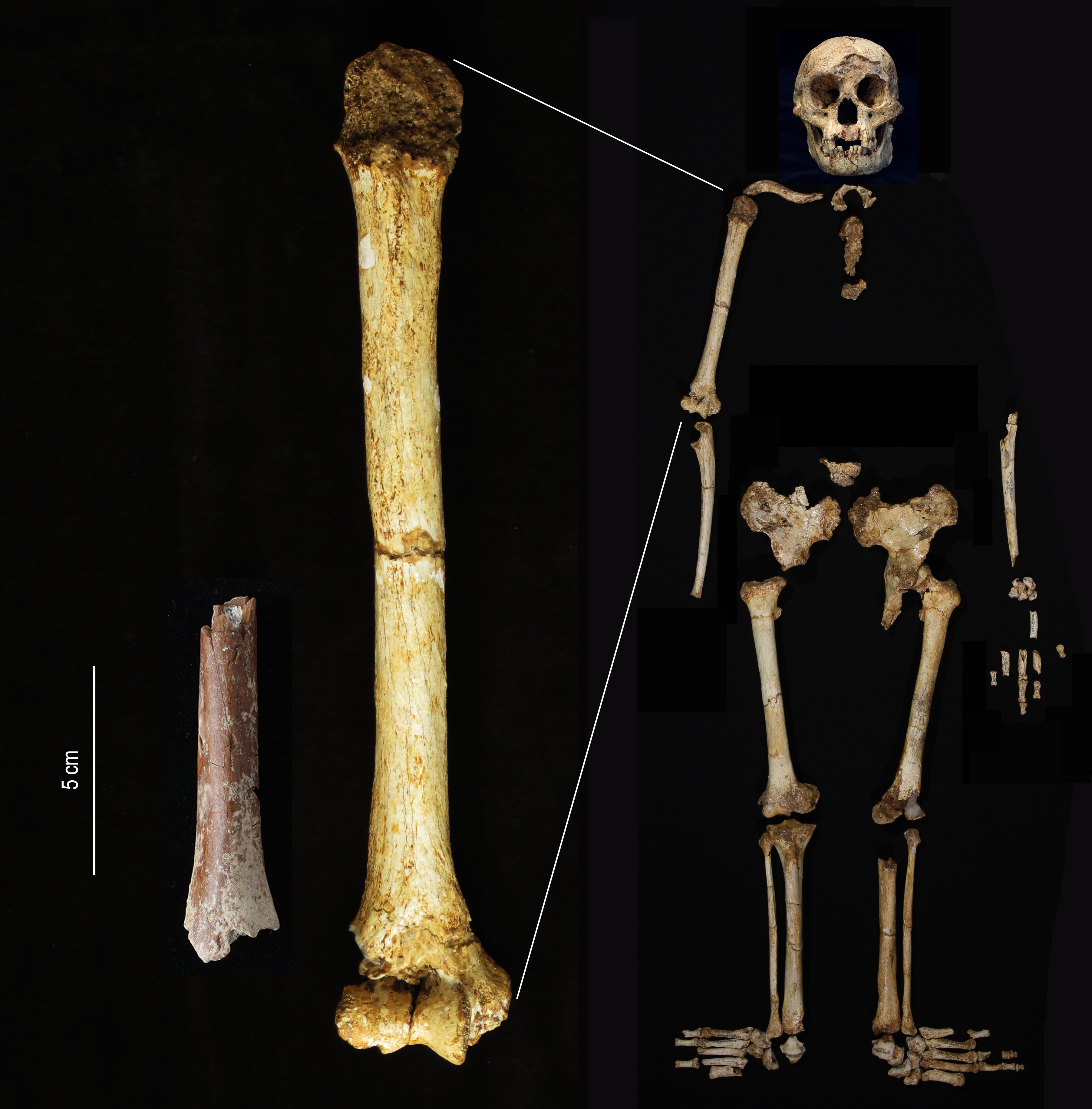Homo floresiensis holds the record for the smallest human species to have ever graced our planet, but some of them might have been even smaller than we first imagined.
A 700,000-year-old fragment of an adult humerus uncovered in 2013 has recently been classified as belonging to an early representative of a species once colorfully described as ‘hobbits’.
Smaller than any in the fossil record – from this ancient cousin or any other hominin for that matter – the piece of upper arm bone expands the picture we have of an unusual relative that walked on Earth alongside us until as recently as 50,000 years ago.
The early human fossil, together with some small teeth, was discovered on the eastern side of the Indonesian island of Flores at an open-air site called Mata Menge.
“This 700,000-year-old adult humerus is not just shorter than that of H. floresiensis, it is the smallest upper arm bone known from the hominin fossil record worldwide,” says archaeologist Adam Brumm from Griffith University in Australia.
Tiny bones could of course come from children, but researchers were able to determine this bone is from an adult by analyzing microscopic cylindrical functional structures called osteons found in the compact outer surface of the bone. The number, size, and arrangement of osteons change as the bone matures during life, indicating the individual’s age at death.
The arm bone’s microscopic structure resembled that of an adult Homo sapien, though based on an estimate of the humerus’s complete length, the adult who once owned the arm bone stood at just 1 meter (3 feet and 3 inches) tall.
Evidence of H. floresiensis was first discovered back in 2003 in Liang Bua cave, in the island’s west. That skeleton was estimated to be about 6 centimeters (2.4 inches) taller than the recently described Mata Menge individual, based on the length of its femur.
“This very rare specimen confirms our hypothesis that the ancestors of Homo floresiensis were extremely small in body size; however, it is now apparent from the tiny proportions of this limb bone that the early progenitors of the ‘Hobbit’ were even smaller than we had previously thought,” Brumm says.
Two notably tiny teeth – one from an adult and one from a child – were also found at the Mata Menge site during subsequent excavations in 2015 and 2016. The archeologists think their shape suggests H. floresiensis is descended from a Javan population of Homo erectus, challenging hypotheses suggesting the small human might have split away from a more ancestral African species.

“The evolutionary history of the Flores hominins is still largely unknown,” says Brumm.
He says the fossils suggest this species of human “did indeed begin when a group of the early Asian hominins known as Homo erectus somehow became isolated on this remote Indonesian island, perhaps one million years ago, and underwent a dramatic body size reduction over time”.

While modern inhabitants of the Indonesian highlands, the Rampasasa, are also small in size, a 2018 genetic study showed no evidence of a direct relationship to H. floresiensis.
There may even be benefits favoring small-statured humans in this particular environment similar to those that benefit many island-bound animals of reduced size, leading to the tiny trait evolving multiple times.
This research is published in Nature Communications.





